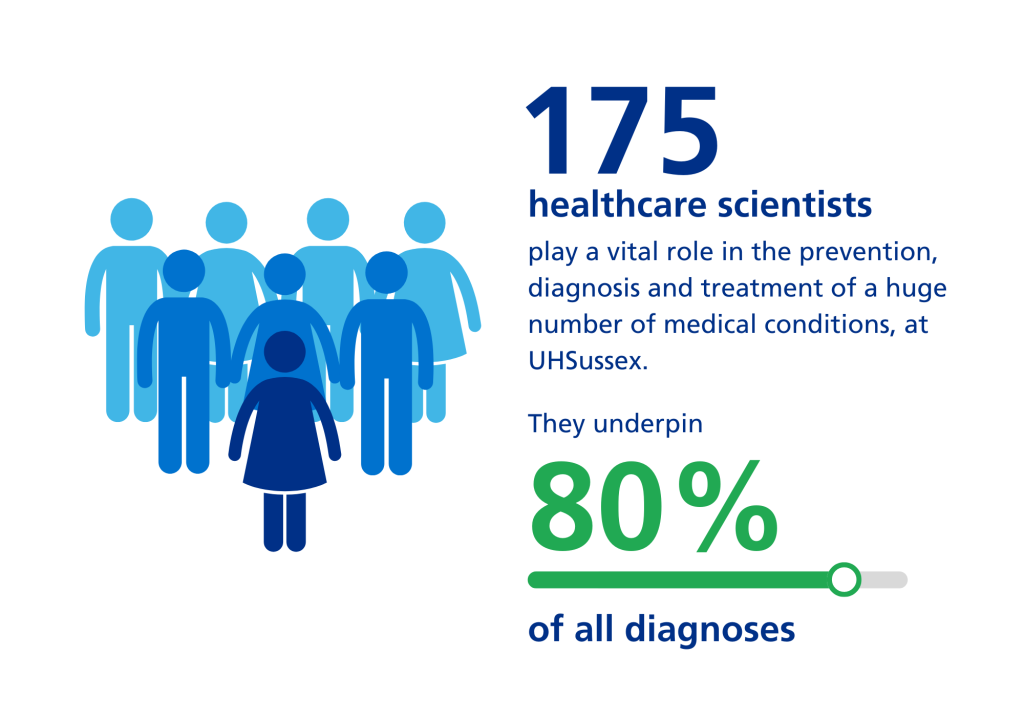
Dr Kate Shipman is a Consultant Chemical Pathologist at UHSussex. She plays a key role in diagnosing and monitoring patients with a wide variety of illnesses, including lipid disorders, common causes of high cholesterol and rare genetic diseases.
She said: “I’ve always enjoyed sciences. It’s my love for the subject that inspired me to apply for medical school.”
And it was this journey to becoming a doctor where Kate learnt the importance of resilience. “I didn’t get accepted to study medicine at university at the first try. It was an extremely competitive process, and I was disappointed when I wasn’t accepted. But I took the opportunity to take a gap-year and was determined to try again the next year.”
The following year, Kate was accepted to Oxford University and hasn’t looked back since.
“Throughout my university studies, I enjoyed the biochemistry aspects of the course. One of my tutors was the late molecular biologist, David H. Dressler, whose passion for science and teaching inspired me.
“In his early career he discovered the ‘rolling circle model’ of how DNA replicates, which at the time caused him to have his fellowship terminated as it was at odds with the leading professor’s views but is now considered fact.
“He also famously took his research to the streets during a period where a ban on genetic experiments had just been lifted in the US with tremendous controversy, allowing the public to try their hand at DNA experiments to show that it does not put you at risk of creating monsters! His way of teaching everyone, lay person or student, was wonderful and inspiring to me.”
As a junior doctor, Kate appreciated the flexibility that the pathology discipline offered and that she could choose how academic or patient-facing to make her role.
She said: “I like that the role offers me a chance to be an expert in a specialist area. I love using numbers, understanding analytical and scientific processes, and also enjoy IT and coding. On top of that, my job also gives me a chance to see patients in clinics, provide expert advice to hospital staff and GPs, and work with our team of dedicated and talented healthcare scientists.”
Kate’s team tests more than 3,000 specimens each day, performing up to 20 different types of tests, that help diagnose a wide range of conditions for patients across Sussex.

Alongside her role at UHSussex, Kate is an associate editor for a renowned science journal and member of the editorial board for a precision medicine journal. She is also passionate about teaching and has contributed to a range of learning resources and patient literature (including the website Lab Tests Online).
Most recently, Kate worked with local NHS partners to create a service that supports the detection and management of a genetic condition called Familial Hypercholesterolaemia (FH), which causes very high cholesterol levels in the blood and is passed down through families.
“If left undiagnosed, patients with (FH) could develop very serious conditions including heart attacks and strokes at a young age. I’m incredibly proud that our local NHS partners have supported this service suggestion, which is now up and running. It has been brilliant working with system partners and will literally save lives.”